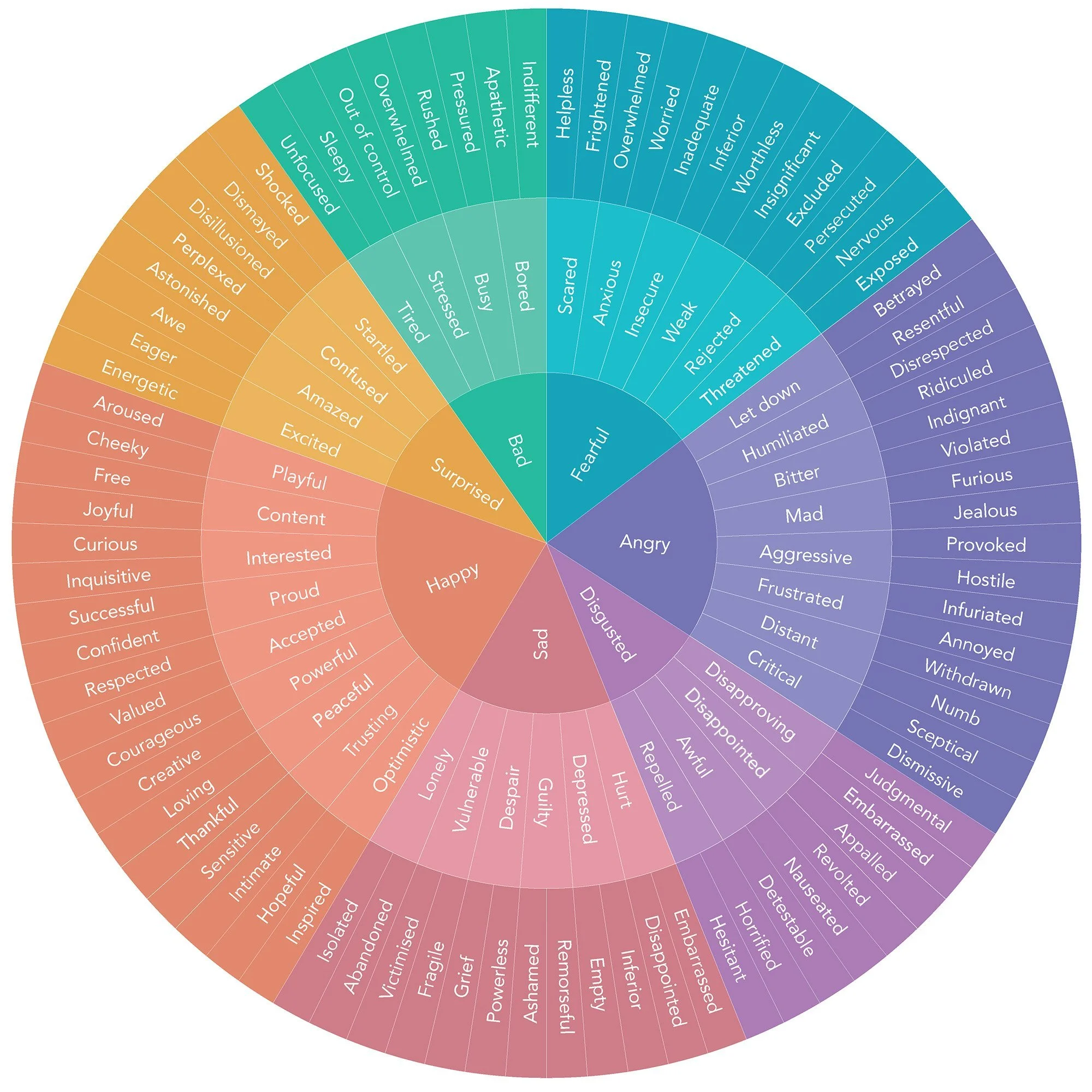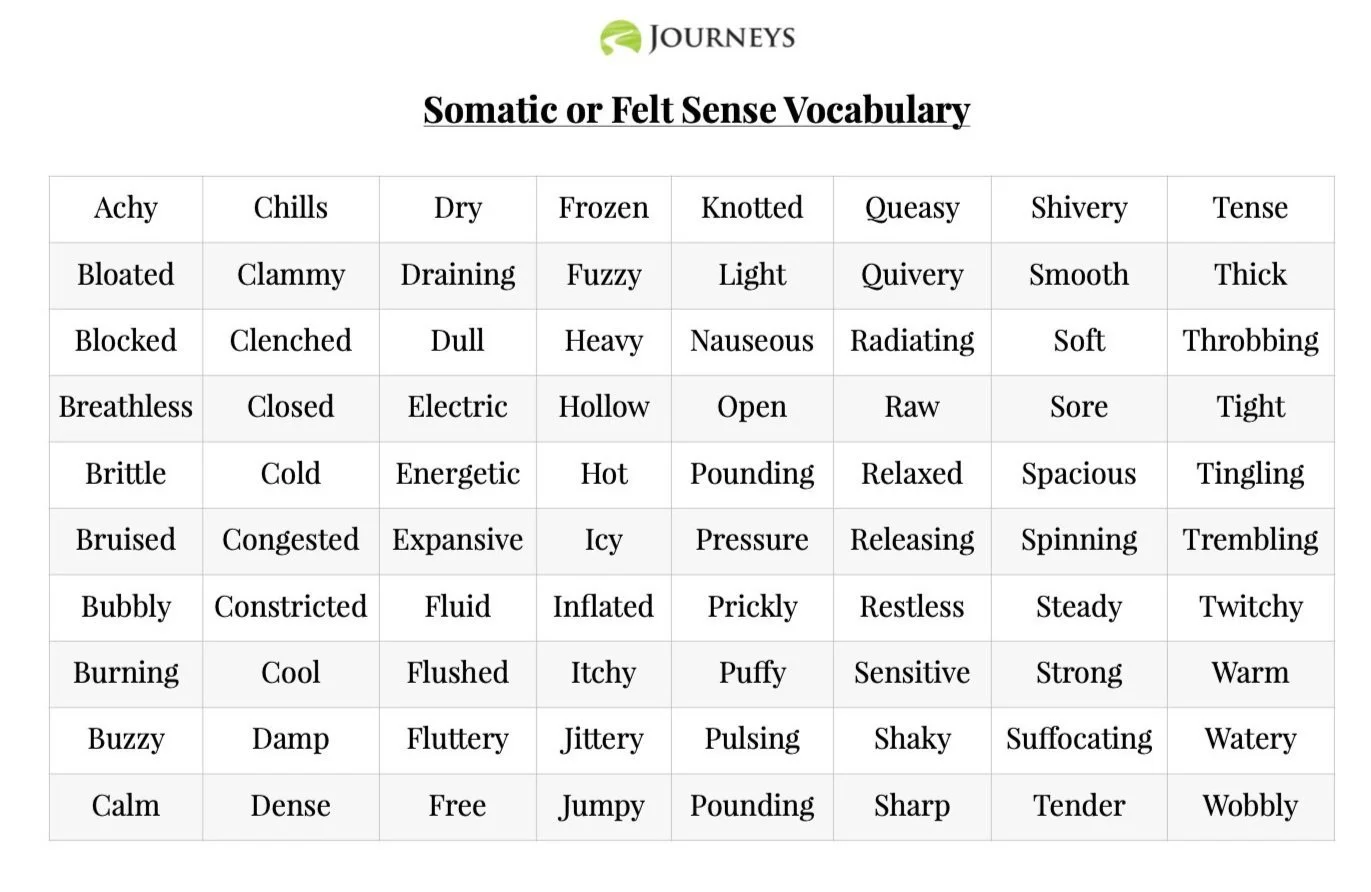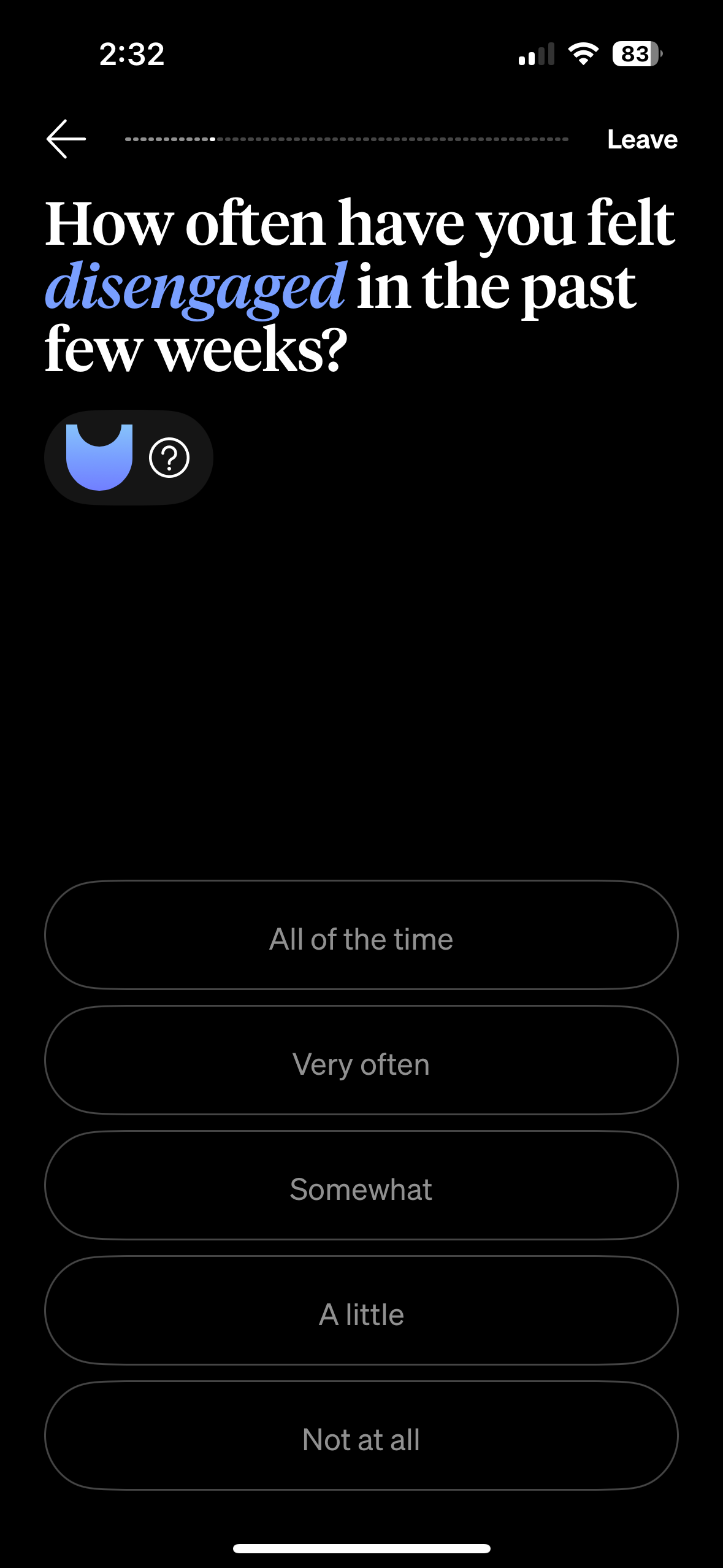Does Emotional Health Impact Teacher Effectiveness?
Emotionally UNhealthy people (like me) can be very effective at doing certain things…BUT…
What do you think? Do you have an answer to that question? Email me if you do. I’d be curious to read your answer.
As for me — ummmm — I’m not sure how I would answer it. I think it’s a complicated question. First, it begs the answer to ‘what does an effective teacher do?’ Additionally, I think different stakeholders (administrators, parents, other teachers, guidance staff, students, etc.) have different views on what effective teachers do.
I DO think it would be easy to argue that emotionally UNhealthy people can be very effective at doing certain things.
Take me for example. Most of my life I’ve generally been emotionally unhealthy. But that didn’t keep me from overworking my ass off and winning state and national teaching awards. So I guess many people would say that I’ve been effective. BUT, during that same teaching career, I’ve suffered burn out, had paralyzing personal crises, and started a years-long journey of seeing professional therapists.
Here is a list (generated by ChatGPT) entitled “Habits Of Emotionally Healthy People.” (Gosh. Double gosh. Yep — loads of unhealth in my life according to this list.)
An emotionally healthy person isn’t perfect, but they’ve cultivated habits that help them navigate life with resilience, authenticity, and relational depth. Here are key habits that emotionally healthy people tend to practice:
1. They Notice and Name Their Emotions
They regularly check in with themselves.
They can identify emotions like anger, sadness, fear, joy, or shame, without dismissing or moralizing them.
They don't say, “I shouldn’t feel this way.” Instead, they ask, “What is this feeling trying to tell me?”
2. They Don’t Minimize or Ignore Pain
They recognize that emotional wounds matter—even if others think they “shouldn’t be a big deal.”
They give themselves permission to grieve losses, acknowledge disappointments, and process wounds rather than stuffing or avoiding them.
3. They Set Healthy Boundaries
They say no without guilt when something violates their values or capacity.
They know their limits, and they protect their time, energy, and emotional space with kindness and clarity.
They understand that boundaries are not rejection—they are a form of self-respect and relational honesty.
4. They Take Responsibility for Themselves
They own their choices, behaviors, and growth.
They don’t blame others for everything, but also don’t take on what isn’t theirs.
They are actively healing their wounds rather than expecting others to heal them.
5. They Practice Vulnerability
They can say, “I’m struggling,” “I was hurt by that,” or “I need help.”
They invite safe people into their inner world and don’t pretend everything’s fine when it isn’t.
6. They Stay Curious, Not Judgmental
Toward others and themselves.
They approach hard conversations and emotions with curiosity rather than defensiveness.
They ask, “What’s going on beneath the surface?” instead of making quick assumptions.
7. They Regulate, Not Suppress
They don’t act on every impulse or feeling, but neither do they shut them down.
They use tools like breathing, reflection, movement, prayer, or therapy to bring their nervous system back to a calm, grounded place.
8. They Live in Alignment with Their Values
They know what matters to them and try to live congruently.
They don’t betray themselves just to gain approval or avoid conflict.
Their integrity brings inner peace—even when it’s hard.
9. They Cultivate Safe Relationships
They are drawn to mutual, respectful, attuned connections.
They recognize unsafe dynamics (e.g., gaslighting, manipulation, chronic invalidation) and don’t normalize or tolerate them.
They choose connection over control.
10. They Make Room for Joy
Emotional health isn’t just about pain—it also includes celebration.
They delight in small pleasures, practice gratitude, and give themselves permission to enjoy life without guilt or shame.
Bonus:
They Are Willing to Grow
Emotional health is a lifelong journey, not a finish line.
They welcome feedback, seek help when needed, and see healing as ongoing—not a sign of failure but of maturity.
Wow. I love that list so much. It is so relieving for me to read even though I continue to need so much growth in these areas.
Sadly, I think some people would say that if I grew these habits into my life that it would make me less of an effective teacher. (They might say I’d become less dedicated — I might make more space in my life for self-care and wouldn’t sacrifice enough for students like more dedicated teachers do.)
Interestingly, other people might say that growing these habits into my life would make me more effective. (They would note that I could become more empathetic and more accessible to students who suffer emotional pain. Being more in touch with my own humanity would allow me to teach and influence my human students more effectively.)
Regardless of how emotional health affects teaching, I’m seeing that it does affect my ability to cope with my life’s pressures, which include my professional pressures. I’m becoming a more joyful professional…and that is becoming a sweet treasure to me at least.
#Teacher Pressure
Is my body telling me a story? Experimenting with tracking feelings and sensations.
Is my body telling me a story? If so, what does it tell me about my experience at school? Why do I get so tense and clenched during the weeks of daily grind? Why do I experience such a noticeable increase in ability to relax when there are long periods of time away from school?
I’m 43 and many years have gone by without me knowing terms like body sensations or negative cognitions. But 2 years ago a friend of mine told me about how his journaling included documenting those two things plus feelings.
Ugh. I hate journaling. And I thought, ‘what the heck does journaling body sensations and negative cognitions look like?' So he explained that he looked at some word banks and copied down the words that applied to him at the moment as he mentally scanned his body, thoughts and feelings.
Here’s an example of what his word banks looked like.
Negative cognitions:
(Resource from VirtualEMDR)
Body sensations:
(Resource from Journeys Counseling)
Feelings:
(Example from Calm.com)
Let me give you a journaling example.
(As I write this blog post, I’m sitting at Dunkin’ Donuts while my daughter is working on some summer course homework. As I’m sitting next to her I will scan my body, thoughts and feelings to give you an example of what the journaling exercise might look like.)
July 5th 3:22pm
Scanning the words on the body sensations word bank, I perceive that I’m currently having these sensations in my body:
achy, breathless, bruised, clenched, constricted, dense, jittery, knotted, shaky, wobbly, tense
Scanning the words on the feelings wheel, I perceive that I’m currently feeling:
weak, frightened, worried, inadequate, insignificant, nervous, exposed, let down, humiliated, critical, annoyed, judgmental, hurt, vulnerable, lonely, isolated, fragile, grief, empty, inferior, disappointed, interested, proud, hopeful, creative, free, surprised, disillusioned, eager, stressed, rushed, pressured
Scanning the words on the negative cognitions list, I perceive that I’m currently thinking (usually subconsciously):
i am defective, i don’t deserve love, i am worthless, i am inadequate, i am not lovable, i am not good enough, i am ugly, i do not deserve, i am insignificant, i am a disappointment, i am different, i don’t belong, i cannot trust my judgement, i am weak, i have to be perfect, i have to please everyone, i should have done something, i did something wrong, i should have known better
Wow. Even though I’ve done that exercise a lot of times now, I’m surprised at how much I’m carrying today without realizing it. (All I’ve done today is sleep in, watch the PSG vs Bayern Munich game at noon, scan the Tour de France day 1 highlights, and take my daughter to dunkin’ donuts.) Whoa. That’s a lot of feelings.
Anyway…the point of this blog post is not what I’m feeling today. The point is that I’ve lived for so long without knowing about this stuff. And it is leading me to some surprising realizations. I’ll share one realization below:
The daily grind of being a teacher at school takes a noticeable toll on my nervous system.
I noticed it for the first time a couple months ago when I had 10 straight days off of school during spring break. I noticed in my body that I was able to experience deeper relaxation and calm knowing that I wasn’t having to go back to school soon. And then I noticed (on the Sunday before returning after spring break) that my ability to access deep relaxation and calm was virtually impossible. I noticed on week nights that I would try to relax but still feel tense because I knew I had to wake up the next day and face school. And the day in and day out experience of that affects my nervous system.
I noticed it for the second time late in June once the school year was done. As the summer started, I noticed that I had the thought, ‘ahhh…I don’t have to go back to school for a long time. I can relax,’ and my nervous system felt relieved.
That’s got me thinking: ‘Is my body (in this case my perception of my nervous system) telling me a story? If so, what does it tell me about my experience at school? Why do I get so tense and clenched during the weeks of daily grind? Why do I experience such a noticeable increase in ability to relax when there are long periods of time away from school?
I’m not sure what the answers are. But I’m trying to learn to explore.
How We Feel: Free App Updates
New updates available!! Track feelings, body sensations, seasonal wellbeing for FREE!
Holy moly!!! 🎉💕
The HOW WE FEEL app has released updates to include tracking body sensations and seasonal surveys!!!
I’m soooo excited!!
How We Feel: a free app
It helps me avoid feeling like I’m tumbled inside of a laundromat dryer.
The app helps me avoid feeling like I’m tumbled inside of a laundromat dryer.
I heard about it from a Brene Brown podcast.
The app says:
People who use more words to describe feelings are better at managing their emotions and getting their needs met.
My family of origin was never good at recognizing, understanding, labeling, expressing and regulating emotions. (RULER approach). This app helps me with every step of that approach — especially the labeling emotions part. In the app, I click on a feelings word and its definition pops up. The definitions help guide me towards labeling what I’m actually feeling. Once I label my feeling, I have the option of exploring what might be causing me to feel that emotion.
There is also the option of allowing AI to guide me in exploring the emotion, identifying thinking traps, suggesting actions, etc. SO HELPFUL. The app also has a TOOLS section with videos, quotes, exercises and tips.
I can analyze the feelings data. It even shows me patters of how I’m feeling based on the amount of sleep I get or based on what the weather has been like!!
I can connect with friends and choose when and if I want to share the feelings that I’m logging. I’ve told some of my students about it saying, “it’s kind of like SnapChat for your feelings!!”
It kind of sounds funny to say it…but it seems like using the app helps me realize what is actually happening to me and how I’m responding to it. Without granularly labeling my feelings — I feel like I’m in a laundromat dryer being bounced around and disoriented by my circumstances. The app helps me feel more grounded and in charge of my day.
It’s free. If you end up trying it out…please comment below. I’d love to hear about it if you like it.






















